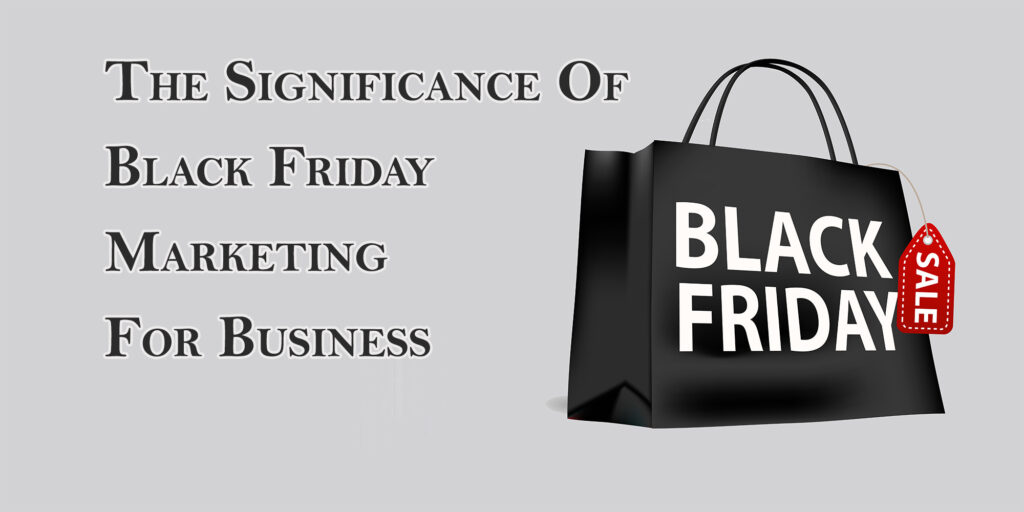Black Friday, the day after Thanksgiving, has evolved into an annual shopping extravaganza that marks the unofficial start of the holiday shopping season. In recent years, this retail phenomenon has spread globally, transcending borders and cultures. Black Friday marketing has become a crucial tool for businesses to boost sales and profits. In this article, we will delve into why Black Friday marketing is so important to businesses, exploring its history, impact on revenue, consumer psychology, and strategies to make the most of this shopping frenzy.
1. The Historical Roots of Black Friday
To understand the importance of Black Friday marketing, it’s essential to recognize its historical origins. The term “Black Friday” was originally coined in the 1960s in Philadelphia, USA, to describe the chaotic and congested shopping day that followed Thanksgiving. Retailers saw an opportunity to kickstart the holiday shopping season by offering enticing discounts and promotions. Over time, the concept spread across the United States and eventually around the world.
Black Friday’s significance is not limited to its historical roots, as it has grown into a global shopping event with its own traditions and cultural impact. Businesses now capitalize on this day to attract customers and drive sales.
2. Boosting Revenue and Profits
One of the most compelling reasons for businesses to invest in Black Friday marketing is the substantial boost in revenue and profits that it can bring. Let’s explore the various ways in which Black Friday marketing contributes to this financial success:
2.1 Increased Sales Volume
Black Friday is synonymous with deep discounts and exclusive deals. This entices consumers to open their wallets and make purchases they may have been postponing. The sheer volume of sales generated on Black Friday is staggering, making it a significant revenue driver for businesses.
2.2 Clearance of Inventory:
For retailers with surplus inventory, Black Friday provides an excellent opportunity to clear out older stock and make way for new products. Clearance sales during this time not only generate revenue but also reduce storage costs and free up valuable shelf space.
2.3 Upselling and Cross-selling:
Clever marketing strategies on Black Friday can encourage customers to buy more than they initially intended. Businesses can offer bundle deals, limited-time promotions, and incentives for larger purchases, boosting their average transaction values.
2.4 Customer Acquisition and Retention:
Black Friday marketing efforts, when executed effectively, can help businesses acquire new customers and retain existing ones. Attracting new shoppers through irresistible deals and satisfying existing customers with exceptional service can lead to long-term brand loyalty.
2.5 Brand Visibility
Participating in Black Friday creates an opportunity for businesses to enhance their brand visibility. This is especially true for small and emerging brands that can leverage the hype around Black Friday to gain recognition and credibility in the market.
3. Consumer Psychology and the Black Friday Phenomenon
Understanding consumer psychology is key to unlocking the full potential of Black Friday marketing. Several psychological factors contribute to the success of this shopping phenomenon:
3.1 Scarcity and Urgency
Black Friday deals are often marketed as limited-time offers, creating a sense of scarcity and urgency. Shoppers fear missing out on these deals, driving them to make impulsive buying decisions.
3.2 Social Proof
The social aspect of Black Friday cannot be underestimated. Seeing long lines at stores or hearing about friends and family scoring great deals creates a sense of social proof, further motivating individuals to participate.
3.3 Competitive Instinct
Shoppers often perceive Black Friday as a competitive event. They want to find the best deals and outdo others, triggering a competitive instinct that fuels their shopping enthusiasm.
3.4 Emotional Appeal
Businesses use emotional marketing tactics to connect with consumers on a personal level. Heartwarming or humorous Black Friday campaigns resonate with shoppers and create a stronger brand-consumer relationship.
3.5 Reward Center Stimulation
Neurologically, shopping during Black Friday can activate the brain’s reward centers. The anticipation of scoring a great deal triggers dopamine release, making shopping on this day feel like a rewarding experience.

4. Crafting Effective Black Friday Marketing Strategies
To reap the benefits of Black Friday, businesses must develop effective marketing strategies tailored to their target audience and goals. Here are some key strategies to consider:
4.1 Pre-Black Friday Hype
Build anticipation by teasing your Black Friday deals well in advance through email marketing, social media teasers, and countdowns. Create excitement and curiosity among your audience.
4.2 Exclusive Discounts
Offer special discounts and promotions that are exclusively available on Black Friday. Ensure that these deals are attractive enough to stand out amidst the competition.
4.3 Multi-Channel Marketing
Utilize multiple marketing channels, including social media, email marketing, paid advertising, and even influencer collaborations, to reach a wider audience and maximize exposure.
4.4 Mobile Optimization
Given the rise in mobile shopping, ensure that your website and online store are optimized for mobile devices. A seamless mobile shopping experience is essential.
4.5 Customer Engagement
Engage with your audience on social media throughout Black Friday. Respond to inquiries promptly, run contests, and encourage user-generated content to create a sense of community around your brand.
4.6 Data Analytics
Use data analytics to monitor the performance of your Black Friday marketing campaigns. Adjust your strategies based on real-time data to optimize results.
4.7 Post-Black Friday Follow-up
Don’t let the momentum end on Black Friday. Follow up with post-sale communications, thank your customers, and consider offering extended deals for Cyber Monday or the holiday season.
Conclusion
Black Friday marketing is a crucial component of any business’s strategy for boosting revenue, clearing inventory, and strengthening customer relationships. By tapping into consumer psychology and crafting effective marketing strategies, businesses can harness the power of this global shopping phenomenon. As Black Friday continues to evolve and expand its reach, it remains an essential date on the retail calendar, offering businesses the opportunity to thrive in a competitive marketplace. To achieve success on Black Friday, businesses must plan meticulously, execute flawlessly, and always prioritize the customer experience. In doing so, they can make this annual shopping extravaganza a true boon for their bottom line.
For more information, visit Bel Oak Marketing.





